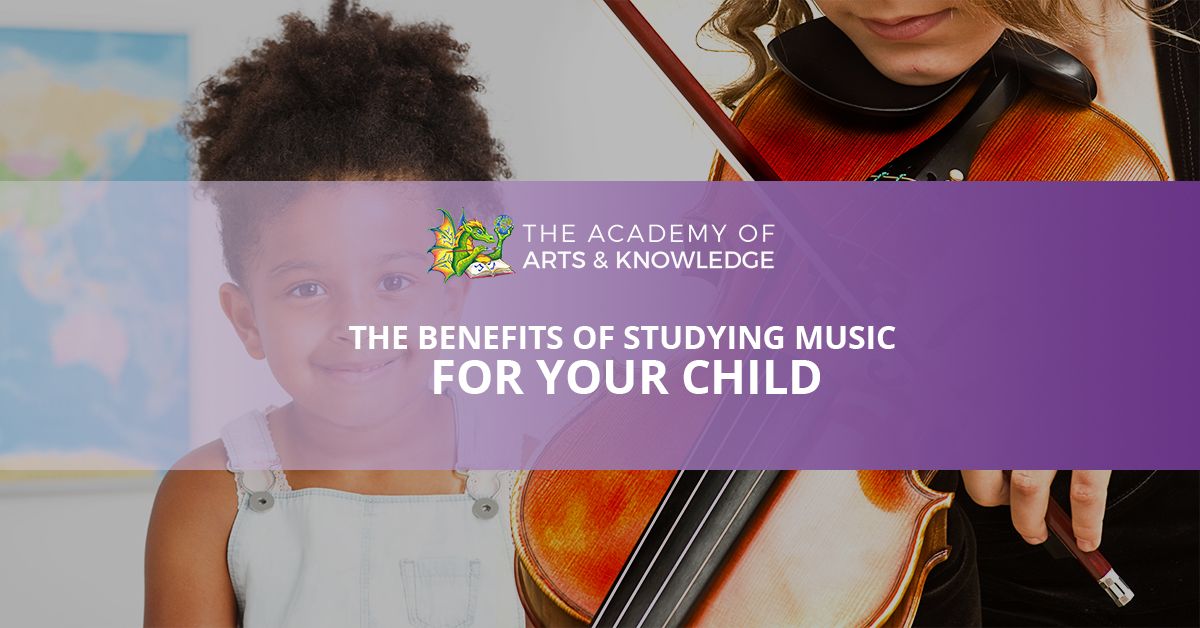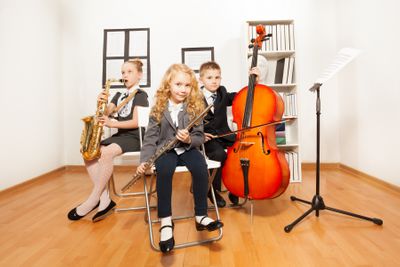
The Benefits of Studying Music for Your Child
Music programs are downsizing greatly in schools across the country, with many not realizing that doing so is actually detrimental to the lives and education of students. In this blog, we will examine a wide variety of benefits that music education can have on school-aged children. At AAK, fine arts is our passion, and you can count on us to continue providing Front Range with a top-notch education that emphasizes a focus on the a robust arts program that complements our core academics. Contact us to enroll your child today.
Improve Proficiency in Mathematics
While it is often thought that creative endeavors and analytical thought come from different areas of the brain, it has been proven that playing a musical instrument can actually benefit a child’s ability to process understand mathematics. Learning an instrument and studying music involves more than just creativity. Whether they are aware of it or not, the more technical elements of playing an instrument — things like timing and rhythm — are actually exercising mathematical reasoning. Counting a complex time signature uses the same kind of reasoning used when studying division. Understanding rhythmic repetition helps children recognize patterns. As the saying goes, "practice makes perfect," so when a child is practicing an instrument, they are also practicing mathematical reasoning!
Exposure to Other Cultures
With a wide variety of music styles coming from all over the world, music education exposes children to new cultures that they may be unfamiliar with. It's not enough to play the music in front of you — students better understand the music as a whole when they are able to study where it came from, who created it, and how it was created. In doing so, a child's worldview is broadened, with exposure to music from places as distant as Russia, Austria, Germany, Poland, and France.

Social Benefits
Playing an instrument with other students who are doing the same can help them form a bond with like-minded peers who share similar interests. The unified mentality of playing a team sport rings true here: all the students work together for the benefit of the group as a whole. Playing a musical instrument in a concert band or orchestra setting can help your child build strong relationships that could stay with them for years to come.
A Means of Self Expression
In many ways, creativity can be an outlet for a child, with many using art and music as a vehicle for self expression. While some may choose to express themselves through other forms — athletics being a popular option for some — creativity is something that should be embraced. Some students view their instrument as their voice, a tool to express things that they may not be able to express otherwise. Playing an instrument gives them access to that tool and benefits their ability to find solutions to problems
Greater Self-Confidence
While academics make up the large majority of a child's schooling experience, school is an environment for education in a broader sense as well, and should facilitate an environment where a student is also able to learn about who they are as an individual. Playing an instrument can give a child confidence and help them understand that while some students may excel in one area, others students may excel in a completely different area. The confidence they gain from playing an instrument can help them grow more confident in themselves overall.
There you go — five examples of how music education benefits students. Is your child exhibiting an interest in music? There is no such thing as starting them too young. Nurture that gift. Get in touch with us and enroll your child at AAK today.
